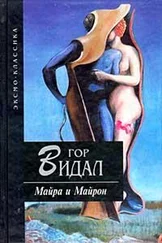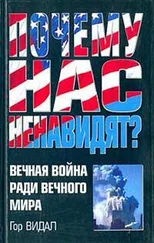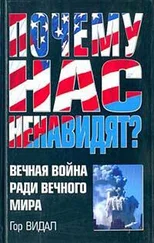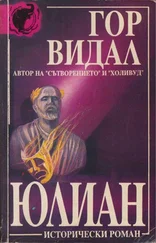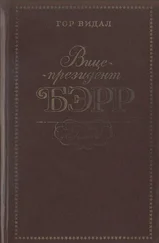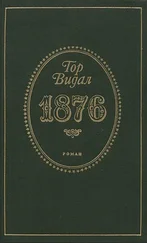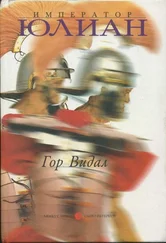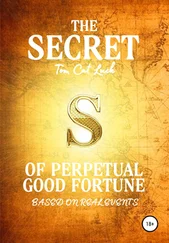Гор Видал - Perpetual War For Perpetual Peace
Здесь есть возможность читать онлайн «Гор Видал - Perpetual War For Perpetual Peace» весь текст электронной книги совершенно бесплатно (целиком полную версию без сокращений). В некоторых случаях можно слушать аудио, скачать через торрент в формате fb2 и присутствует краткое содержание. Жанр: Проза, на английском языке. Описание произведения, (предисловие) а так же отзывы посетителей доступны на портале библиотеки ЛибКат.
- Название:Perpetual War For Perpetual Peace
- Автор:
- Жанр:
- Год:неизвестен
- ISBN:нет данных
- Рейтинг книги:5 / 5. Голосов: 1
-
Избранное:Добавить в избранное
- Отзывы:
-
Ваша оценка:
- 100
- 1
- 2
- 3
- 4
- 5
Perpetual War For Perpetual Peace: краткое содержание, описание и аннотация
Предлагаем к чтению аннотацию, описание, краткое содержание или предисловие (зависит от того, что написал сам автор книги «Perpetual War For Perpetual Peace»). Если вы не нашли необходимую информацию о книге — напишите в комментариях, мы постараемся отыскать её.
Perpetual War For Perpetual Peace — читать онлайн бесплатно полную книгу (весь текст) целиком
Ниже представлен текст книги, разбитый по страницам. Система сохранения места последней прочитанной страницы, позволяет с удобством читать онлайн бесплатно книгу «Perpetual War For Perpetual Peace», без необходимости каждый раз заново искать на чём Вы остановились. Поставьте закладку, и сможете в любой момент перейти на страницу, на которой закончили чтение.
Интервал:
Закладка:
Thus, he denies any foreknowledge of the presence of children in the Murrah building, unlike the FBI, which knew that there were children in the Davidian compound, and managed to kill twenty-seven of them.
McVeigh quotes again from Justice Brandeis: "'Our government is the potent, the omnipresent teacher. For good or ill it teaches the whole people by its example.'" He stops there. But Brandeis goes on to write in his dissent, "Crime is contagious. If the government becomes the law breaker, it breeds contempt for laws; it invites every man to become a law unto himself." Thus the straight-arrow model soldier unleashed his terrible swift sword and the innocent died. But then a lawless government, Brandeis writes, "invites anarchy. To declare that in the administration of the criminal law the end justifies the means — to declare that the government may commit crimes in order to secure the conviction of a private criminal — would bring terrible retribution."
One wonders if the Opus Dei plurality of the present Supreme Court's five-to-four majority has ever pondered these words so different from, let us say, one of its essential thinkers, Machiavelli, who insisted that, above all, the Prince must be feared.
Finally, McVeigh sent me three pages of longhand notes dated April 4, 2001, a few weeks before he was first scheduled to die. It is addressed to "CJ." (?), whose initials he has struck out.
I explain herein why I bombed the Murrah Federal Building in Oklahoma City. I explain this not for publicity, nor seeking to win an argument of right or wrong. I explain so that the record is clear as to my thinking and motivations in bombing a government installation.
I chose to bomb a Federal Building because such an action served more purposes than other options. Foremost, the bombing was a retaliatory strike: a counter-attack, for the cumulative raids (and subsequent violence and damage) that federal agents had participated in over the preceding years (including, but not limited to, Waco). From the formation of such units as the FBI's "Hostage Rescue" and other assault teams amongst federal agencies during the 80s, culminating in the Waco incident, federal actions grew increasingly militaristic and violent, to the point where at Waco, our government — like the Chinese — was deploying tanks against its own citizens.
. For all intents and purposes, federal agents had become "soldiers" (using military training, tactics, techniques, equipment, language, dress, organization and mindset) and they were escalating their behavior. Therefore, this bombing was also meant as a pre-emptive (or pro-active) strike against those forces and their command and control centers within the federal building. When an aggressor force continually launches attacks from a particular base of operations, it is sound military strategy to take the fight to the enemy. Additionally, borrowing a page from U.S. foreign policy, I decided to send a message to a government that was becoming increasingly hostile, by bombing a government building and the government employees within that building who represent that government. Bombing the Murrah Federal Building was morally and strategically equivalent to the U.S. hitting a government building in Serbia, Iraq, or other nations. Based on observations of the policies of my own government, I viewed this action as an acceptable option. From this perspective what occurred in Oklahoma City was no different than what Americans rain on the heads of others all the time, and, subsequently, my mindset was and is one of clinical detachment. (The bombing of the Murrah Building was not personal, no more than when Air Force, Army, Navy or Marine personnel bomb or launch cruise missiles against (foreign) government installations and their personnel.)
I hope this clarification amply addresses your question.
Sincerely,
T. M.
USP Terre Haute (In.)
There were many outraged press notes and letters when I said that McVeigh suffered from "an exaggerated sense of justice." I did not really need the adjective except that I knew that few Americans seriously believe that anyone is capable of doing anything except out of personal self-interest, while anyone who deliberately risks — and gives — his life to alert his fellow citizens to an onerous government is truly crazy. But the good Dr. Smith put that one in perspective: McVeigh was not deranged. He was serious.
It is June 16. It seems like five years rather than five days since the execution. The day before the execution, June 10, the New York Times discussed "The Future of American Terrorism." Apparently, terrorism has a real future; hence we must beware Nazi skinheads in the boondocks. The Times is, occasionally, right for the usual wrong reasons. For instance, their current wisdom is to dispel the illusion that "McVeigh is merely a pawn in an expansive conspiracy led by a group of John Does that may even have had government involvement. But only a small fringe will cling to this theory for long." Thank God: one had feared that rumors of a greater conspiracy would linger on and Old Glory herself would turn to fringe before our eyes. The Times , more in anger than in sorrow, feels that McVeigh blew martyrdom by first pleading not guilty and then by not using his trial to "make a political statement about Ruby Ridge and Waco." McVeigh agreed with the Times , and blamed his first lawyer, Stephen Jones, in unholy tandem with the judge, for selling him out. During his appeal, his new attorneys claimed that the serious sale took place when Jones, eager for publicity, met with the Times's Pam Belluck. McVeigh's guilt was quietly conceded, thus explaining why the defense was so feeble. (Jones claims he did nothing improper.)
Actually, in the immediate wake of the bombing, the Times concedes, the militia movement skyrocketed from 220 antigovernment groups in 1995 to more than 850 by the end of '96. A factor in this growth was the belief circulating among militia groups "that government agents had planted the bomb as a way to justify anti-terrorism legislation. No less than a retired Air Force general has promoted the theory that in addition to Mr. McVeigh's truck bomb, there were bombs inside the building." Although the Times likes analogies to Nazi Germany, they are curiously reluctant to draw one between, let's say, the firing of the Reichstag in 1933 (Goering later took credit for this creative crime), which then allowed Hitler to invoke an Enabling Act that provided him with all sorts of dictatorial powers "for protection of the people and the state," and so on to Auschwitz.
The canny Portland Free Press editor, Ace Hayes, noted that the one absolutely necessary dog in every terrorism case has yet to bark. The point to any terrorist act is that credit must be claimed so that fear will spread throughout the land. But no one took credit until McVeigh did, after the trial, in which he was condemned to death as a result of circumstantial evidence produced by the prosecution. Ace Hayes wrote, "If the bombing was not terrorism then what was it? It was pseudo terrorism, perpetrated by compartmentalized covert operators for the purposes of state police power." Apropos Hayes's conclusion, Adam Parfrey wrote in Cult Rapture , "[The bombing] is not different from the bogus Viet Cong units that were sent out to rape and murder Vietnamese to discredit the National Liberation Front. It is not different from the bogus 'finds' of Commie weapons in El Salvador. It is not different from the bogus Symbionese Liberation Army created by the CIA/FBI to discredit the real revolutionaries." Evidence of a conspiracy? Edye Smith was interviewed by Gary Tuchman, May 23,1995, on CNN. She duly noted that the ATF bureau, about seventeen people on the ninth floor, suffered no casualties. Indeed they seemed not to have come to work that day. Jim Keith gives details in OKBOMB! , while Smith observed on TV, "Did the ATF have a warning sign? I mean, did they think it might be a bad day to go into the office? They had an option not to go to work that day, and my kids didn't get that option." She lost two children in the bombing. ATF has a number of explanations. The latest: five employees were in the offices, unhurt.
Читать дальшеИнтервал:
Закладка:
Похожие книги на «Perpetual War For Perpetual Peace»
Представляем Вашему вниманию похожие книги на «Perpetual War For Perpetual Peace» списком для выбора. Мы отобрали схожую по названию и смыслу литературу в надежде предоставить читателям больше вариантов отыскать новые, интересные, ещё непрочитанные произведения.
Обсуждение, отзывы о книге «Perpetual War For Perpetual Peace» и просто собственные мнения читателей. Оставьте ваши комментарии, напишите, что Вы думаете о произведении, его смысле или главных героях. Укажите что конкретно понравилось, а что нет, и почему Вы так считаете.

